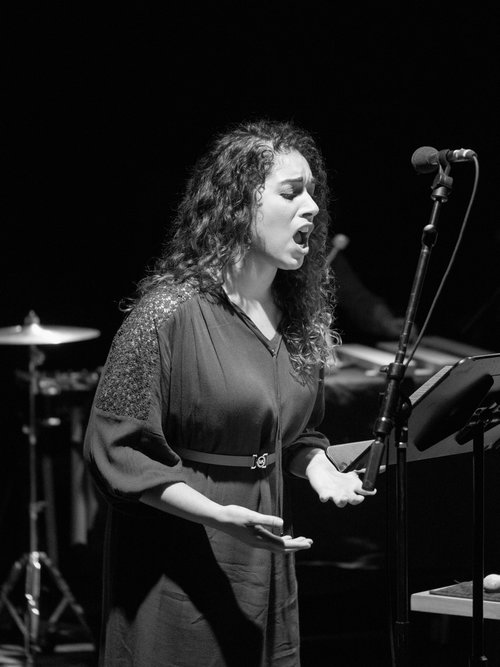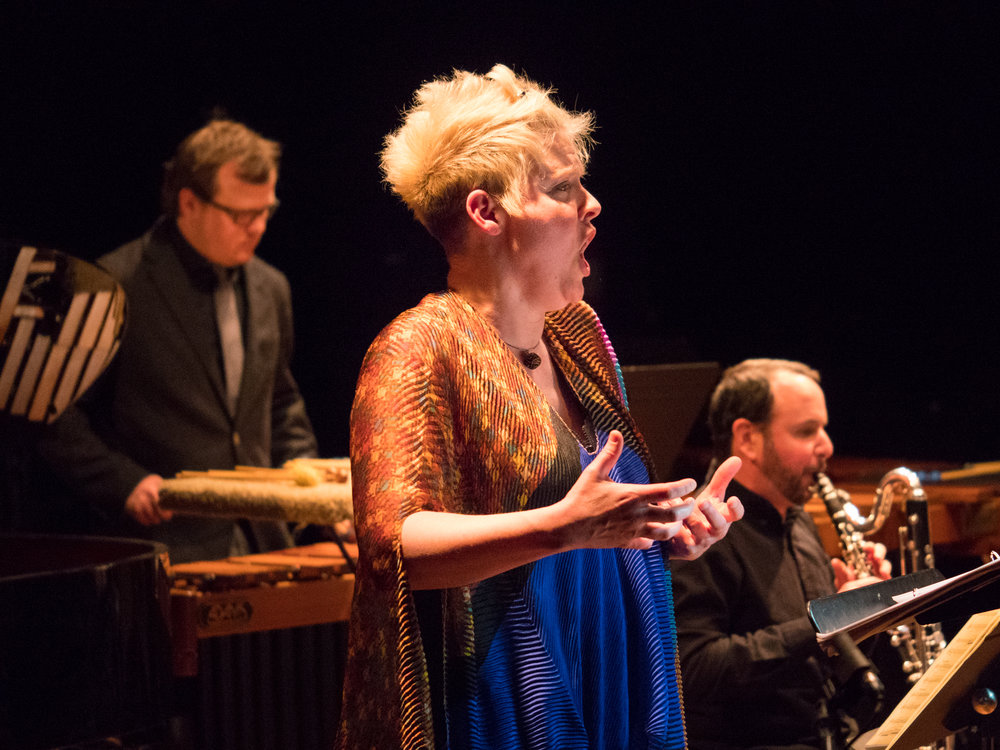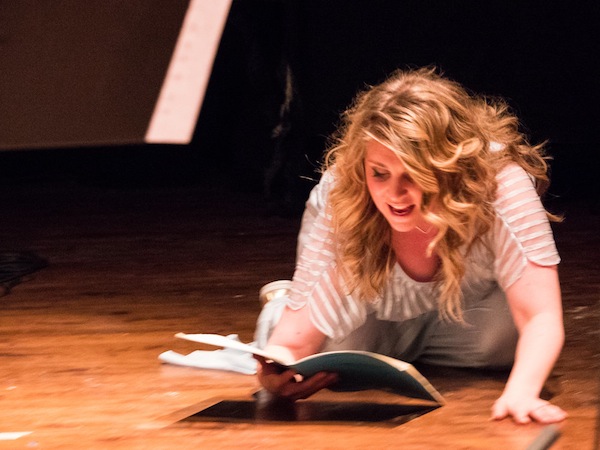Three sopranos take the stage at Resonant Bodies Festival

Friday’s opening night of the Resonant Bodies Festival at Constellation offered a mostly exhilarating plunge into the wilder corners of experimental vocal music. On Saturday, with sopranos Tony Arnold, Sophia Burgos and Amanda DeBoer Bartlett as featured artists, the Chicago edition of the New York-based festival focused on slightly less exotic territory.
Running for three evenings, the festival spotlighted artists either living in Chicago or connected in some way with the city. Arnold certainly meets the second requirement. Now based on the East Coast, she spent 14 years in Chicago after earning a master’s degree at Northwestern, and local audiences with a taste for contemporary music remember her fierce, technically dazzling performances on the Chicago Symphony’s MusicNOW series and with groups including the International Contemporary Ensemble.
She provided that same kind of passion and stunning virtuosity Saturday’s performance of three works, among them Messiaen’s ecstatic song cycle, Chants de Terre et de Ciel (Songs of the Earth and the Sky).
Arnold knows how to seduce an audience with thoughtful programming, and her set opened with what struck the ear as a charming a cappella trifle: Récitation # 12 by Georges Aperghis, a Greek-born composer living in France. Hurling her bright soprano into a high-velocity torrent of half-spoken, half-sung French, Arnold resembled an excitable French shopkeeper. Now burbling lavish compliments, now hectoring a reluctant customer, she was both indefatigable and formidably self-possessed. Providing neither printed text nor text summary, Arnold allowed us the pleasure of savoring the sonic color of her meticulously enunciated, melodious barrage and conjuring up whatever scenario we pleased.
The world premiere of Amy Williams’s Fünf Worte for voice and Indian harmonium was a welcome respite, with Arnold responding languorously to the long-held, serene chords of Jacob Greenberg’s dulcet little instrument. In each of the work’s five sections, Williams plays with the way the German language strings short words together to form entirely new, dauntingly long words overflowing with crackling consonants and succulent sibilants. Sitting on floor cushions, Arnold and Greenberg traded ideas, lingering over a repeated, plaintive open vowel here, tossing out an edgy motif there. Their musical phrases wandered between dissonant and tonal territory like an intimate, sometimes playful, conversation between old friends.
Arnold closed her set with a volcanic performance of the six songs of Messiaen’s Chants de Terre et de Ciel arranged for small chamber ensemble by Chicagoan Cliff Colnot. In these songs the deeply religious Messiaen pours out his love for his wife and his newborn son as well as his thoughts on death, guardian angels and Easter. Soaring to pure, ringing heights, luxuriating in warm, dark depths, Arnold’s agile, powerful soprano conveyed every nuance of Messiaen’s emotional intensity. In Colnot’s spare but colorful arrangement, the small ensemble of musicians from the International Contemporary Ensemble and the University of Michigan Contemporary Directions Ensemble conducted by Oriol Sans underscored the cycle’s rhapsodic urgency.
However, the audience faced a frustration all too common to vocal recitals. Constellation’s moody lighting added welcome drama, but the light was too dim to follow the printed text. Given Arnold’s obvious reverence for Messiaen’s words, it was a shame that most of us couldn’t immediately grasp their meaning.
Soprano Sophia Burgos, originally from Chicago and now based in Germany, plunged into more conceptual territory during her set, with the world premiere of Canto X by young American composer Andrew Haig. Sharing the spotlight with mezzo-soprano Fleur Barron and accompanied by evocative percussion, clarinet and guitar, Burgos brought rich, luminous color to Haig’s sonic exploration of various languages. With no printed translations, we floated along the music’s unpredictable aural trajectory, from radiant, single notes hanging in the theater’s utter silence to juicy whispers and explosive, crystalline leaps into the vocal stratosphere. The piece was enigmatic, but theatrical enough to hold our interest.
Resonant Bodies likes to mash up musical styles, and in the evening’s closing set Amanda DeBoer Bartlett put yet a third kind of music onstage. A DePaul graduate who studied with Arnold at the University of Buffalo, she has the relaxed charm of a cabaret chanteuse and the eloquent, pure sound of a compelling folk singer.
But she has the chops of a classically trained soprano. Especially in Pascal Dusapin’s rapid-fire, faintly comic Two Walking, she raced through the nonsensical words (text by Gertrude Stein) with astoundingly pristine technique. Trading phrases with the equally adept soprano Liz Pearse, Bartlett prowled the stage like a mischievous child, merrily bombarding her patient partner with bit and pieces of swooping, plosive words. Occasionally their voices blended into gentle harmony, caressing the air with their smooth, swooning song.
That caressing quality was especially evident in Bartlett’s songs with guitarist Jesse Langen. In some of her own compositions, her strong, youthful soprano glowed like a laser atop Langen’s often electronically stormy guitar. When the harmony turned dissonant, but Bartlett’s unwavering soprano convinced that safe harbors would come.
Posted in Performances



